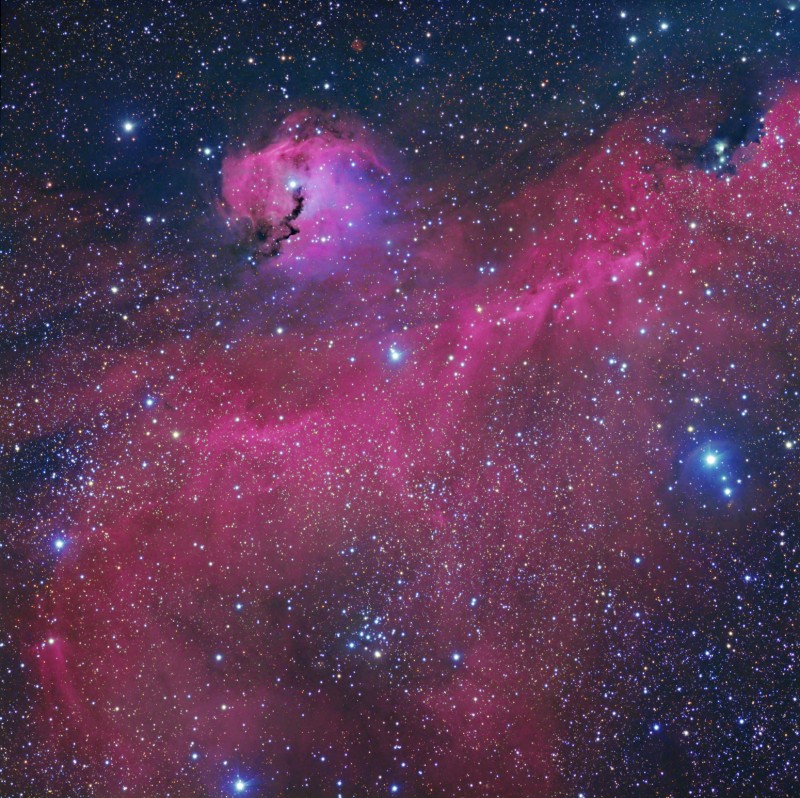Credit & Copyright: Michael Sidonio
Explanation:
This broad expanse of glowing gas and dust presents
a bird-like visage to astronomers
from planet Earth,
suggesting its popular moniker -
The Seagull Nebula.
This portrait
of the cosmic bird covers a 1.6 degree wide swath
across the plane of the Milky Way,
near
the direction of Sirius, alpha
star of the constellation Canis Major.
Of course, the region includes objects with other
catalog
designations: notably
NGC 2327,
a compact, dusty emission region
with an embedded massive star that forms the bird's head
(aka the Parrot Nebula, above center).
IC 2177
forms the sweeping arc of the seagull's wings.
Dominated by the
reddish glow of atomic hydrogen,
the complex of gas and dust clouds with bright
young stars spans over 100 light-years at an estimated
3,800 light-year distance.
1999 2000 2001 2002 2003 2004 2005 2006 2007 2008 2009 2010 2011 2012 2013 2014 2015 2016 2017 2018 2019 2020 2021 2022 2023 2024 2025 |
Yanvar' Fevral' Mart Aprel' Mai Iyun' Iyul' Avgust Sentyabr' Oktyabr' Noyabr' Dekabr' |
NASA Web Site Statements, Warnings, and Disclaimers
NASA Official: Jay Norris. Specific rights apply.
A service of: LHEA at NASA / GSFC
& Michigan Tech. U.
|
Publikacii s klyuchevymi slovami:
emission nebula - hydrogen - dust cloud - gas - emissionnaya tumannost' - gaz - vodorod - pylevoe oblako
Publikacii so slovami: emission nebula - hydrogen - dust cloud - gas - emissionnaya tumannost' - gaz - vodorod - pylevoe oblako | |
Sm. takzhe:
Vse publikacii na tu zhe temu >> | |
